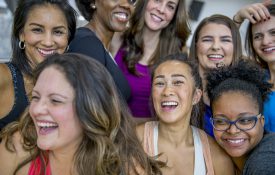-

When Moral Outrage Goes Viral, It Can Come Across as Bullying
People tend to view a social media comment that calls out offensive behavior positively, but not when it’s echoed by several other commenters.
-

Young Adults Help Parents Instead of Friends When Forced to Choose
Findings from a risk-taking game show that, when forced to make a decision that benefits either a parent or a close friend, young adults are more likely to choose the parent.
-
New Research From Psychological Science
Read about the latest research published in Psychological Science: Learning Efficiency: Identifying Individual Differences in Learning Rate and Retention in Healthy Adults Christopher L. Zerr, Jeffrey J. Berg, Steven M. Nelson, Andrew K. Fishell, Neil K. Savalia, and Kathleen B. McDermott People differ in their ability to learn new information, not only in how much and for how long they retain it but also in how quickly they learn. Zerr and colleagues tested the relationship between quickness of initial learning and long-term retention.
-
New Research From Psychological Science
Read about the latest research published in Psychological Science: Mind-Body Practices and the Self: Yoga and Meditation Do Not Quiet the Ego but Instead Boost Self-Enhancement Jochen E. Gebauer, Andreas D. Nehrlich, Dagmar Stahlberg, Constantine Sedikides, Anke Hackenschmidt, Doreen Schick, Clara A. Stegmaier, Cara C. Windfelder, Anna Bruk, and Johannes Mander Yoga and meditation have entered the mainstream and are associated with significant benefits for physical and psychological well-being. Gebauer and colleagues conducted an empirical test of the psychological processes underlying these benefits. Participants were tested for several weeks before or after practicing yoga or meditation.
-

Ability to Identify Genuine Laughter Transcends Culture
People across cultures and continents are largely able to tell the difference between a fake laugh and a real one.
-

New Research From Clinical Psychological Science
A sample of research exploring callous-unemotional traits and anxiety, mediators and mechanisms in psychotherapy research, executive function and depressive symptoms across development, and core deficits in borderline personality disorder.

